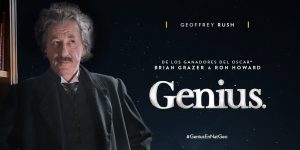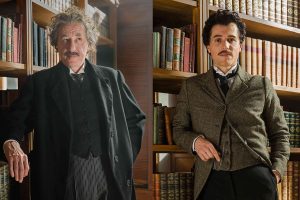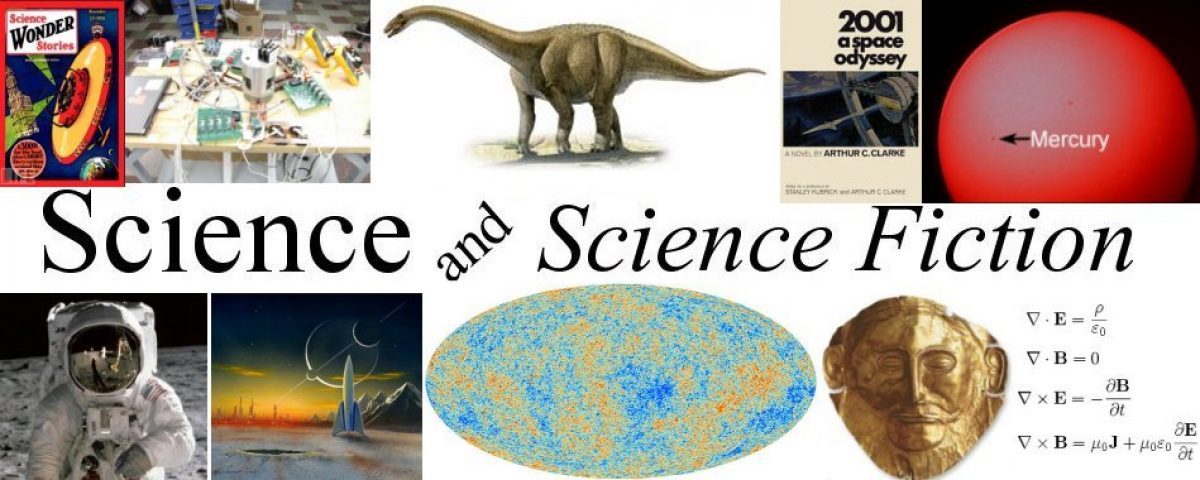This week the final 2-hour installment of the first season of the new National Geographic Channel’s Series Genius was broadcast. The first season was a biography of the most famous scientist of the twentieth century, Albert Einstein.

The series was produced by Ron Howard and Brian Grazer through their company Imagine Entertainment. Starring Geoffrey Rush as the older Einstein and Johnny Flynn as young Einstein the 10 part series gives an account of Einstein’s life based on the Book ‘Einstein: His Life and Universe’ by Walter Isaacson.

The first half of the of biography dealt with Einstein’s relationship with his first wife and fellow scientist Mileva Maric’. Now just how much Mileva contributed to Albert’s development of Relativity and his other achievements is a very controversial question. There are many people that believe that if Mileva had not been a woman she would have achieved much as a scientist and that she probably deserved a share of Albert’s Nobel Prize. In Genius they show how Mileva worked with Albert, and was treated as little more than a resource by him. Nevertheless the great insights, the famous thought experiments are portrayed as Albert’s only. This may be as accurate a description of the truth as we can manage after the passing of so many years.
The second half of Genius contrasts Einstein’s strong pacifism against the lives of two of his colleagues at the Kaiser William II institute, Fritz Haber and Phillip Lenard. Haber was a chemist who was born a Jew like Einstein but throughout his life he always considered himself more German than Jewish and converted to Christianity. Haber greatest scientific achievement, for which he received the Nobel Chemistry Prize, was his development of a process to produce ammonia gas out of nitrogen in the atmosphere and hydrogen gas. Although few people know about Haber’s work it this is really one of the greatest discoveries in all of history. The commercial production of ammonia is the foundation of the development of all artificial fertilizers! Half of the people alive today eat food that is grown with fertilizer based on Haber’s discovery!
During World War I Haber also used his discovery to manufacture explosives and more than that he became Germany’s expert in the development of poison gas as a weapon of war! (In Genius Haber is depicted as supervising the first poison gas attack whereas most historical sources have him witnessing it) Neither of these two services to Germany did him any good though, for when the Nazi’s came to power all anyone remembered was that he was born a Jew!
Phillip Lenard, on the other hand may have been a great scientist, his work was instrumental in the later development of vacuum tube amplifiers and the Cathode ray picture tube, but he was a vicious anti-Semite throughout his life. (In Genius Lenard despises Einstein from the moment he hears the name) During Hitler’s reign Lenard was made the head of ‘German / Aryan Science’ and worked hard to prevent the teaching of relativity in Germany. After Hitler’s fall Lenard was a broken man who died only two years later, his reputation today is still that of a racist not a scientist.
But Einstein’s strong pacifisms got him in a lot of trouble as well. In Germany during WWI he was criticized from not helping to defend the fatherland and when the Nazi’s came to power he got out as quick as he could. Even in the US however his outspoken views got him in continual trouble with J. Edgar Hoover and the FBI. Einstein never actually worked on the atomic bomb project because he was never trusted with a security clearance.
I guess the lesson to be learned is just that war never really does anyone any good! Now there’s a revolutionary theory!
I do have a few criticisms of Genius. Two physicists who do not appear at all but WHO SHOULD are Karl Schwarzschild and Satyendra Nath Bose both of whom did important work related to Einstein’s. And let’s not forget Hendrik Antoon Lorentz whose work gave Einstein the foundation on which relativity is built! He definitely deserved greater mention.
National Geographic has just announced that there will be a second season of Genius. The subject of next season will be the artist Pablo Picasso. I suppose I’ll watch, at least the first episode but since he’s not a scientist I may not comment on it. We’ll have to see.

